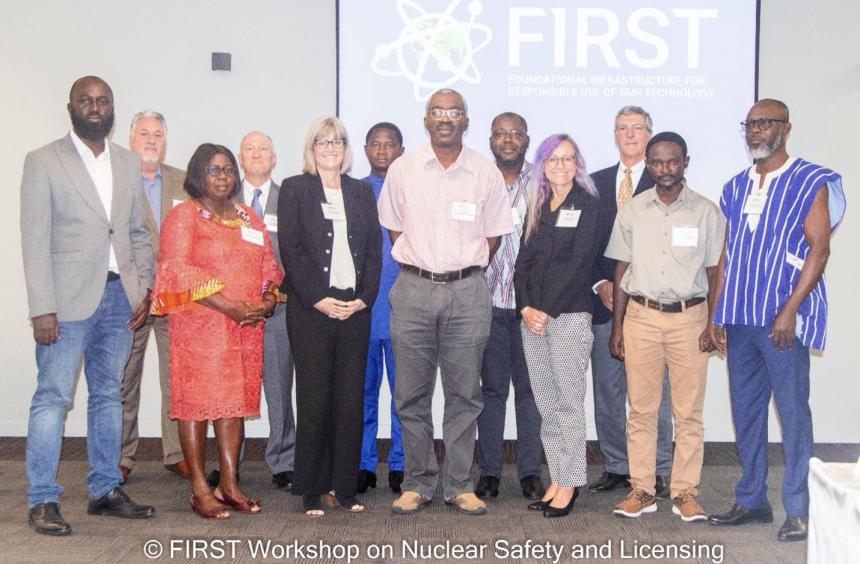
On August 18-19, 2022, the U.S. Nuclear Regulatory Commission’s (NRC’s) International Regulatory Development Partnership (IRDP) held a 2-day licensing and regulatory development workshop in Ghana sponsored by the U.S. Department of State under the Foundational Infrastructure for Responsible Use of Small Modular Reactor Technology (FIRST) program. The objective of the workshop was to facilitate discussions among the key stakeholders about the regulatory challenges associated with licensing small modular reactors (SMRs). Those discussions followed presentations on the NRC licensing framework, key differences between large light-water reactors and SMRs, and the NRC’s experience with SMR license application reviews.
The workshop was held in Accra, Ghana and was conducted by subject matter experts from NRC’s contractor, Advanced Systems Technology and Management, Inc. (AdSTM), Mr. Mark Tonacci, Mr. Stewart Magruder and Mr. Mark Shaffer. Ghanaian government agencies participating in the workshop included the Nuclear Regulatory Authority, the Ghana Atomic Energy Commission, Nuclear Power Ghana, and the Nuclear Power Institute. Ms. Laura Denlinger of FIRST and Ms. Maureen Conley of the NRC facilitated workshop planning. The first day of the workshop featured a presentation by the Ghana Atomic Energy Commission on the status of Ghana’s nuclear power program. This was followed by an NRC presentation on the SMR licensing process, focused on the policy level, and a discussion of how the NRC has engaged other government agencies on licensing. At the end of the first day a breakout session was held on readiness activities to implement the nuclear power program in Ghana.
Day two discussions included an NRC presentation on the evolution of nuclear power and safety, a more detailed review of the NRC’s two-step licensing process, potential SMR regulatory challenges, and NRC insights in conducting SMR safety reviews. The workshop concluded with a breakout session focused on the implementation steps to prepare for a reactor application. Attendees showed a great deal of preparedness for bringing nuclear power to Ghana, deepened their understanding of the remaining challenges, and provided very positive feedback on the workshop.
